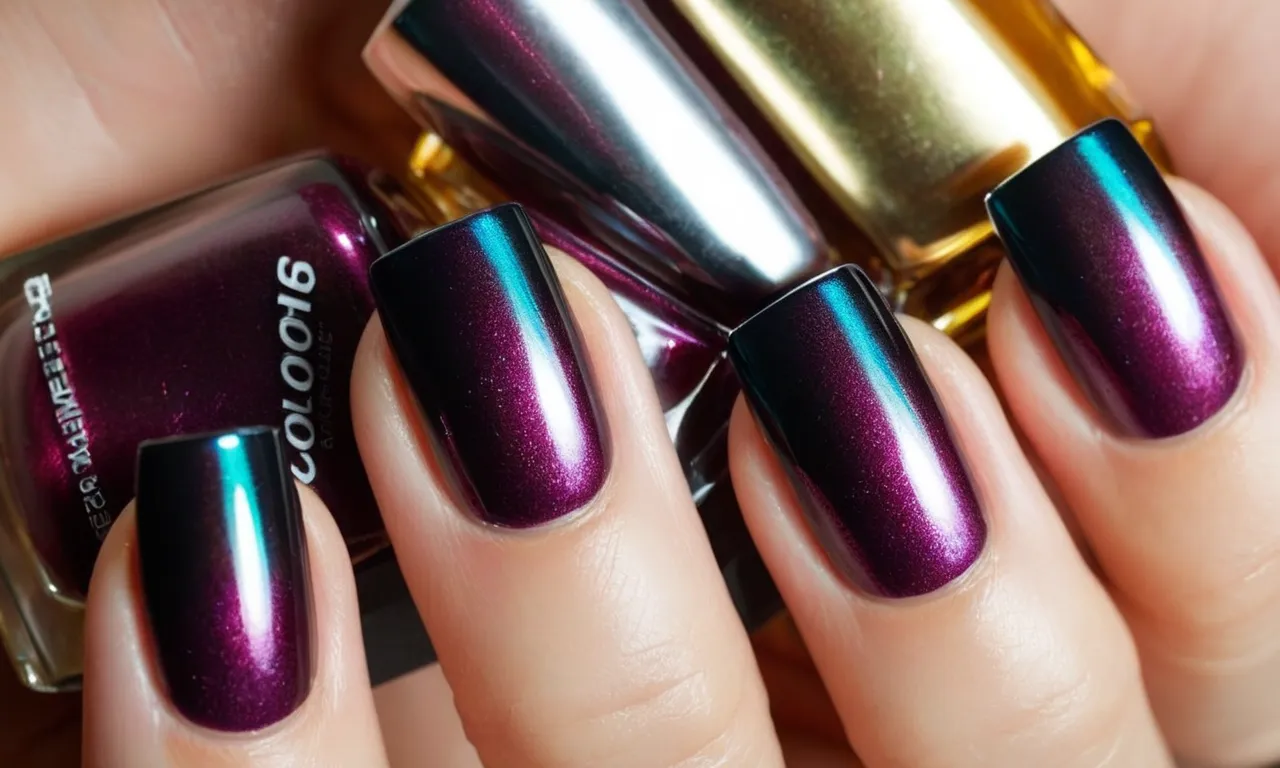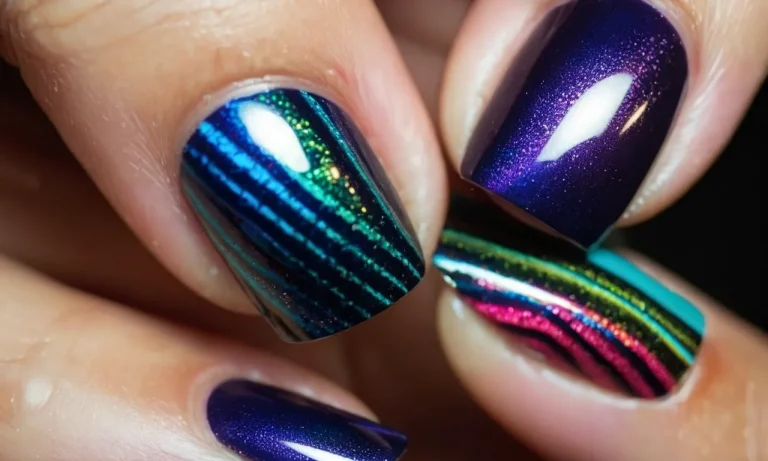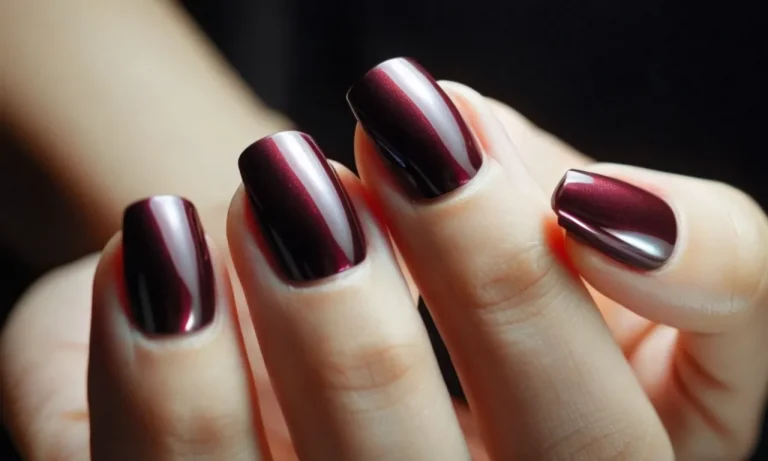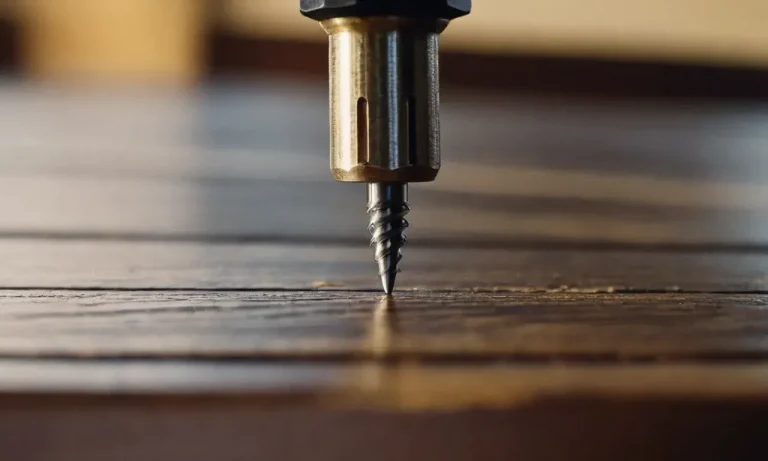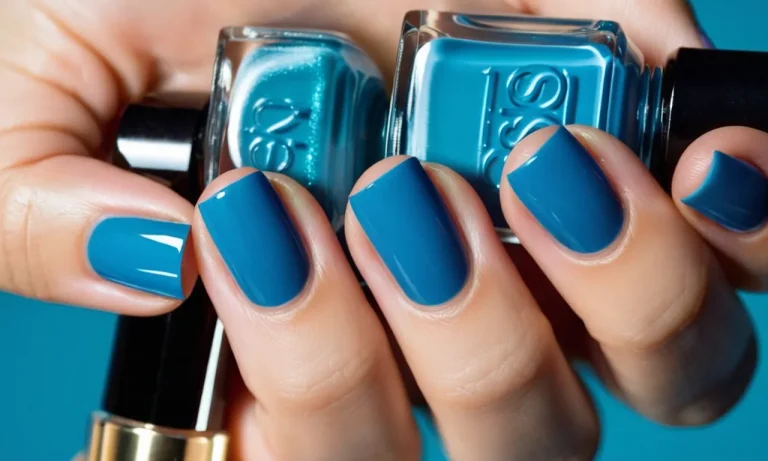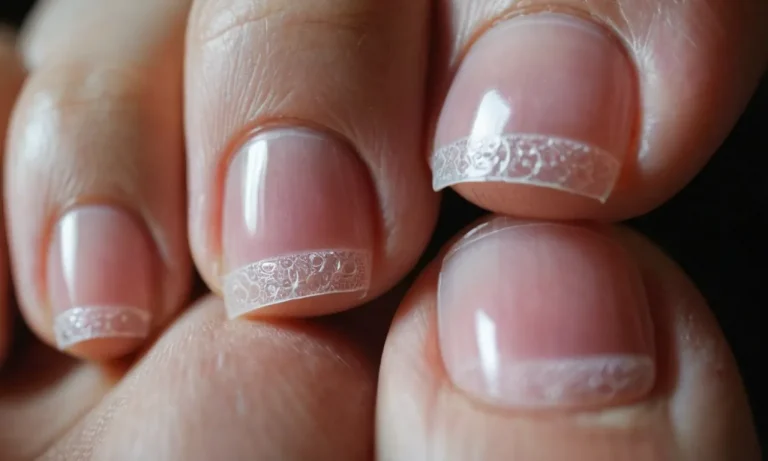Biotin For Nails And Hair: What You Need To Know For Stronger, Healthier Growth
If you’ve noticed your nails peeling or your hair feeling brittle lately, you’re not alone. Weak nails and lackluster locks are common complaints. Luckily, there’s a supplement that can help: biotin.
If you’re short on time, here’s a quick answer to your question: Biotin is a B vitamin that helps your body metabolize fats, carbs, and proteins. It promotes healthy nail and hair growth by providing the building blocks your body needs to produce keratin, the protein that makes up your nails and hair.
In this comprehensive guide, we’ll discuss everything you need to know about using biotin supplements to support stronger, healthier hair and nails. You’ll learn about biotin’s benefits for hair and nails, how much you need to take, whether there are any risks or side effects, and the best biotin supplements to try.
How Does Biotin Help Nails and Hair?
Promotes Keratin Production
Biotin is essential for the production of keratin, which is a key structural protein that makes up your hair, skin and nails. Keratin helps give hair its elasticity and strength. When you have a biotin deficiency, your ability to produce keratin is impaired, leading to brittle nails and hair loss.
Biotin supplements help ramp up keratin production, leading to stronger, healthier hair and nails. Multiple studies have found that biotin supplements increase keratin infrastructure in those with a deficiency (1). An increase in keratin helps hair grow faster while reducing breakage.
Strengthens Nails
Your nails are largely made of keratin, which is produced in the nail matrix. When biotin production is insufficient, you end up with brittle, cracked nails that break easily. By promoting keratin infrastructure, biotin supplements thicken nails and stimulate faster growth.
A study in 8 people with brittle nails found that 2.5 mg of biotin per day for 6 to 15 months increased nail thickness by 25% (2). Some research also indicates that biotin could help treat nail fungal infections when used in combination with other medications (3).
Supports Hair Growth and Texture
In addition to boosting keratin, studies show that biotin benefits hair by regulating cell growth and division. When hair follicles have a steady supply of biotin, it allows hair to grow uninhibited and with less breakage over time (4).
Biotin may also help improve hair texture. A review of the effects of biotin on hair found that it can increase elasticity and smoothness. This leads to less frizz and more manageable locks (5).
Plus, getting enough biotin is key if you want those luscious, Rapunzel-like strands. Multiple studies have found that biotin supplements can help thicken hair, increase volume and even stimulate growth in people with thinning hair (6, 7).
Biotin Recommended Intake
Recommended Daily Allowance
The recommended daily allowance (RDA) for biotin is 30 mcg per day for adults over 18 years old. This is the minimum amount needed to prevent biotin deficiency. However, many experts believe the RDA is too low, especially for promoting healthy hair, skin, and nails.
Most recommend getting 100-300 mcg of biotin per day for optimal health and beauty benefits.
Here are the current RDAs for biotin set by the National Institutes of Health:
- 0-6 months: 5 mcg
- 7-12 months: 6 mcg
- 1-3 years: 8 mcg
- 4-8 years: 12 mcg
- 9-13 years: 20 mcg
- 14-18 years: 25 mcg
- Adults: 30 mcg
- Pregnant women: 30 mcg
- Breastfeeding women: 35 mcg
As you can see, the RDA jumps from 25 mcg for adolescents to 30 mcg for adults. Many experts believe adults need a higher intake for optimal biotin levels, especially if trying to improve hair and nail growth.
Dosage for Hair and Nails
Research shows that taking 2.5-5 mg per day of biotin can improve hair and nail growth in those who are deficient. That’s 75-150 times higher than the RDA! However, there is little evidence that mega-doses beyond this range provide any additional benefit.
Here are some general dosage recommendations for biotin:
- Deficiency: Up to 5 mg per day
- Hair growth: 2.5-5 mg per day
- Brittle nails: 2.5-5 mg per day
- General wellness: 30-100 mcg per day
Of course, it’s always best to speak with your healthcare provider to determine the optimal biotin dosage for your individual needs. Some medications and health conditions can impact how your body absorbs and uses biotin, so personalized medical advice is recommended.
It’s also a good idea to start with a lower dose and work your way up slowly to avoid potential side effects like acne breakouts or digestive upset. Give your body time to adjust to higher doses. Most biotin supplements come in small microgram amounts, so gradually increasing your intake should be easy.
With the right biotin dosage, most people see improvements in hair and nail growth within 2-4 months. Patience and consistency are key. And remember, biotin works best as part of a holistic approach that also focuses on nutrition, scalp health, hydration, and limiting damaging hairstyles.
Foods High in Biotin
Animal Products
Some of the best natural sources of biotin are certain animal products like eggs, organ meats, milk, cheese, and salmon. For example, one whole egg contains about 10 mcg of the vitamin, whereas 3 oz of cooked beef or salmon provides over 30 mcg biotin.
Organ meats like beef liver are particularly high, with just 3 oz supplying over 30,000 mcg or 10 times the Daily Value. Notably, pasteurization destroys some of the naturally occuring biotin in products like milk and cheese.
Nuts and Seeds
Many tree nuts and seeds provide good amounts of biotin. Some top sources include almonds, walnuts, sunflower seeds, and pecans—just an ounce (28 grams) provides between 2–6 mcg. However, adequate consumption is needed as the amount in a single serving is relatively small.
For perspective, 1 cup (122 grams) of almonds contains about 25 mcg.
Fruits and Vegetables
Some fruits and vegetables also contain decent amounts of biotin. Noteworthy sources include bananas, onions, sweet potatoes, berries, mushrooms, spinach, broccoli, cauliflower, and tomatoes. Similar to nuts and seeds though, fruits and vegetables only provide small amounts per serving.
To put it into context, 1 cup (148 grams) of cooked broccoli has about 0.4 mcg while a large banana contains around 0.2 mcg.
Though plant foods do contain some biotin, bioavailability is considered much lower compared to animal sources. Research suggests the biotin in products like eggs and organ meats is more readily absorbable by the human body.
| Food | Biotin per 3 oz (85 g) Serving |
|---|---|
| Beef liver | 30,982 mcg |
| Pork | 11 mcg |
| Salmon | 5 mcg |
| Egg | 10 mcg |
| Almonds | 1 mcg |
According to the National Institutes of Health (NIH), the recommended daily intake of biotin is 30 mcg for adults over 18 years old.[1] Consuming foods naturally high in biotin like organ meats, salmon, eggs, nuts and seeds can help you meet your daily needs from diet alone.
Biotin Supplements
Types of Biotin Supplements
There are a few different forms of biotin supplements on the market. The most common types are:
When to Take Biotin
Experts generally recommend taking biotin supplements once per day, typically with or right after a meal containing healthy fats or protein. Consuming biotin with food may enhance its absorption and effectiveness.
The time of day is not critical, so taking biotin supplements whenever is most convenient in your daily routine is fine.
Best Biotin Supplements for Hair and Nails
Some top-rated biotin supplements for supporting hair and nail health include:
Biotin Side Effects and Precautions
Interactions with Medications
Biotin can interact with certain medications and affect how they work. For example, high doses of biotin can interfere with lab tests that use biotinylation, causing falsely high or low results. Some examples of medications that biotin may interact with include:
- Anti-seizure medications like carbamazepine (Tegretol) and phenytoin (Dilantin): Biotin may decrease blood levels, potentially making these medications less effective.
- Antibiotics like rifampin: Biotin can decrease antibiotic levels in the body.
- Thyroid hormones: Excessive doses of biotin could impact thyroid hormone assays, making levels appear falsely high or low.
- Cardiac troponin levels: High-dose biotin supplements may falsely lower troponin lab results.
If you take any long-term medications, check with your healthcare provider before starting biotin supplements. They can advise you on potential interactions and help adjust medication dosages if needed.
Effects on Lab Test Results
In addition to specific medication interactions, high doses of biotin can interfere with many common lab tests and cause incorrect test results. This seems to occur because biotin in the blood can bind to test antibodies or analytics, affecting their ability to measure levels of other substances accurately.
Some examples of laboratory tests that may be impacted by high biotin intake include:
- Thyroid hormone tests like TSH, T3 and T4
- Cardiac marker tests like troponin and NT-proBNP
- Certain hormone tests like estradiol, testosterone and ACTH
- Vitamin assays
- Anemia-related tests
The threshold for biotin interference seems to be above 5,000 mcg per day in many cases. To avoid skewed test results, stop taking biotin supplements at least 72 hours before having an affected lab test done. Be sure to inform your healthcare provider about all supplements you take as well.
| Type of Test | Potential Impact of High-Dose Biotin |
|---|---|
| Thyroid function tests | Incorrect high or low TSH, T3, T4 levels |
| Cardiac marker tests | Falsely lower troponin, CK-MB results |
| Hormone assays | Inaccurate estradiol, testosterone levels |
Other Considerations
While biotin is generally considered very safe, a few other precautions are worth noting when taking biotin supplements:
- Pregnancy/breastfeeding: Always check with your doctor before taking any supplement when pregnant or breastfeeding. Up to 30 mg of biotin daily appears safe, but potential side effects are not well studied.
- Children: Biotin is likely safe for children in amounts below the recommended daily intake. However, effects of high doses are unknown and larger doses should be avoided.
- Kidney dialysis: High doses of biotin may bind to chemicals used in dialysis, increasing the risk of side effects. Dialysis patients should use biotin only under medical supervision.
Additionally, while not extremely common, skin complications like rashes or acne have occasionally been reported with high biotin doses. Discontinue use if any unusual symptoms occur.
As with most supplements, it’s wise not to take any more than the recommended dose for your needs. Adults need 30-100 mcg per day, while some health organizations recommend up to 300-500 mcg for hair and nail benefits.
By being aware of potential medication interactions, effects on lab tests, and other precautions, biotin supplements can be used safely by most healthy adults. But check with your doctor first if you take any medications or have any medical conditions.
Conclusion
In summary, biotin is an essential B vitamin that plays a key role in the health and appearance of your hair and nails. It supports keratin production to strengthen brittle nails and improve hair growth.
While you can get biotin from foods like eggs, nuts, and avocados, taking a supplement can provide the higher doses shown to benefit hair and nails.
When shopping for a biotin supplement, look for a reputable brand that provides at least 2500 mcg of biotin. Take the supplement consistently, as it can take 3-6 months to see results. Be aware of potential side effects and interactions with medications.
If in doubt, consult your doctor before taking biotin supplements.
With a little patience and consistency, taking a biotin supplement may give you the longer, stronger nails and lush locks you’ve been hoping for. Just remember – your health and beauty shine from within, and biotin can help nourish you from the inside out.

